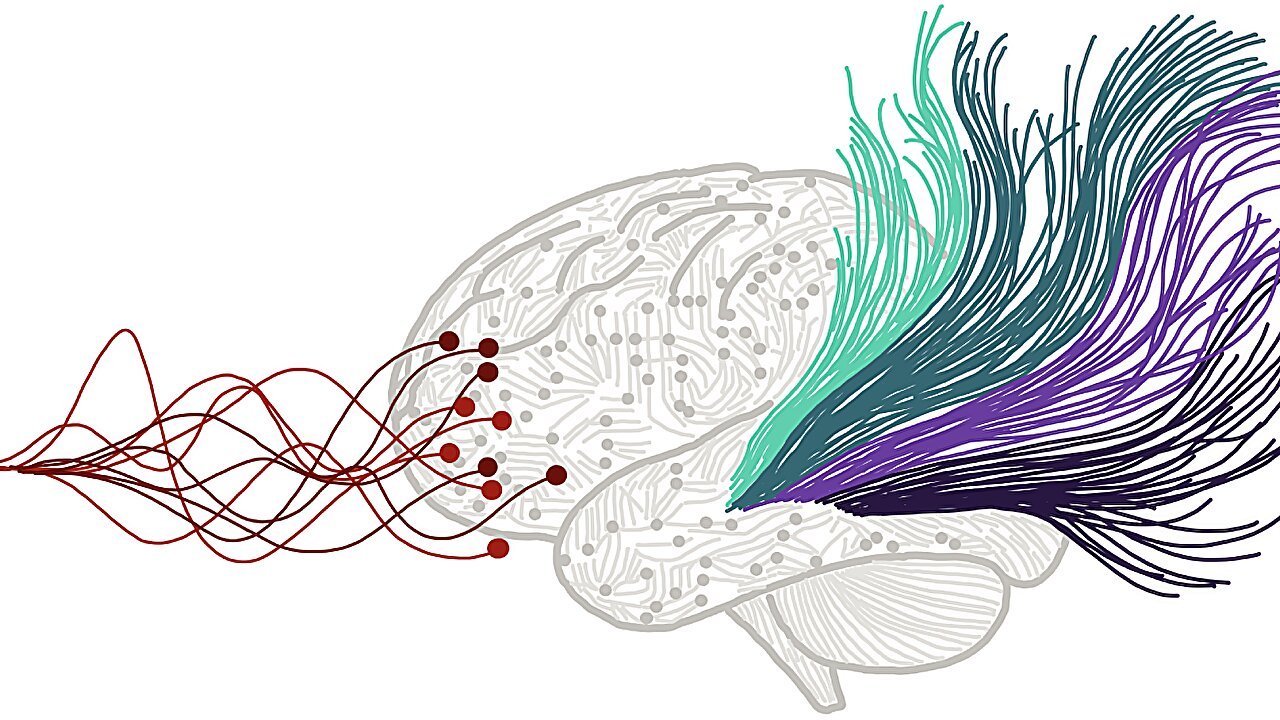In the world of neuroscience, random noise—like the background chatter during a phone call—is often viewed as an unwelcome distraction. It’s the static that disrupts communication, interferes with clarity, and makes it harder to focus. However, new research led by Nuttida Rungratsameetaweemana, an assistant professor of biomedical engineering at Columbia Engineering, challenges this conventional view by showing that the brain may actually harness these unpredictable fluctuations to perform crucial cognitive functions, particularly those related to memory.
Published in the Proceedings of the National Academy of Sciences on January 16, the study presents a paradigm-shifting perspective on how the brain uses randomness to enhance its memory processes. The findings suggest that rather than interfering with memory, as traditionally thought, random fluctuations—referred to as “noise” in neural activity—can actually aid the brain in stabilizing memories, making them more persistent over time. This discovery not only sheds light on fundamental brain mechanisms but also has significant implications for the development of more resilient and adaptive technologies, particularly in artificial intelligence (AI) and neuroscience.
Understanding Brain Noise and Cognitive Processes
The brain is a complex organ filled with unpredictable variability in its activity. While we may think of noise as something that disrupts the brain’s ability to carry out tasks, Rungratsameetaweemana and her team were curious about how the brain manages cognitive processes like memory and decision-making despite this inherent randomness.
“Despite this randomness, the brain excels at tasks that require precise control, such as memory retention,” explains Rungratsameetaweemana. “How does the brain manage this? Does noise hinder or help?” This question is at the heart of the study.
Previous research on brain-inspired AI systems, such as neural networks, hinted that random fluctuations could actually improve performance, especially in systems learning to solve specific tasks. However, these studies were based on simplified models of neural networks. The question remained: could randomness play a similar, beneficial role in the more complex, biologically realistic neural networks of the human brain?
A New Approach: Biologically Plausible Models
In their recent study, Rungratsameetaweemana and her colleagues went beyond these simple AI models by developing more biologically plausible neural networks. These models incorporated two key types of neurons found in the brain: excitatory neurons, which increase activity, and inhibitory neurons, which suppress activity. This combination of excitation and inhibition mimics the complex dynamics of real brain networks, providing a more accurate representation of how the brain handles noise.
To test their hypothesis, the team utilized high-powered computational resources provided by the Systems Intelligence Laboratory at Columbia Engineering. These resources allowed the researchers to simulate complex neural dynamics in ways that were previously impossible, granting them unprecedented insight into how random fluctuations might affect memory processes in the brain.
Discovering the Role of Noise in Memory
The central discovery of this study was that random noise, which is often thought of as a disruptive force, might actually be crucial for memory stability. When the researchers introduced random noise into their model, they observed a surprising effect: the noise slowed down the weakening of inhibitory neuron connections. This delay in the weakening of connections between inhibitory neurons helped stabilize neural patterns related to memory, making them more persistent.
“Your brain doesn’t block out the noise—it works with it, integrating the randomness to stabilize your memory,” says Rungratsameetaweemana. This insight challenges the traditional belief that noise in the brain weakens memory. Instead, it suggests that the brain actively uses this randomness to enhance the reliability and stability of memories over time.
This phenomenon could be compared to how a stable signal might be more resistant to interference in communication systems. The random fluctuations in brain activity could serve to reinforce neural patterns, particularly those related to long-term memory, and prevent them from fading too quickly.
A New Perspective on Memory Stability
Memory, especially long-term memory, is not a static process. It involves the encoding, consolidation, and retrieval of information, each of which is influenced by neural activity. In this new framework, noise plays a stabilizing role in these processes, ensuring that memories persist longer despite the inherent fluctuations in brain activity.
This research could help answer long-standing questions about memory, such as: How do we retain memories for decades? How reliable can our memories be? “This study shows that, by understanding how the brain handles noise, we can gain insights into how memories can be preserved over long periods,” says Alex Williams, assistant professor at the Center for Neural Science at New York University and the Center for Computational Neuroscience at the Flatiron Institute. Williams, who was not involved in this research, praises the study for its counterintuitive findings, highlighting how computational models can offer unexpected insights into complex brain functions.
Implications for Artificial Intelligence and Technology
While the study offers deep insights into brain function, it also has the potential to inspire more resilient and adaptive technologies. One of the main applications of this research could be in artificial intelligence systems. Traditional AI systems often struggle with uncertainty and randomness, especially when deployed in dynamic real-world environments. By mimicking the brain’s ability to leverage random fluctuations, AI systems could become more adaptable and better at handling unpredictable circumstances, such as robots navigating through changing environments or healthcare tools tracking subtle changes in patient data.
“We believe that understanding how the brain integrates randomness can lead to AI systems that are not only more adaptable but also better at processing uncertain data in real time,” says Rungratsameetaweemana. This approach could pave the way for robots, medical devices, and AI models that better reflect the complexity and resilience of human cognition.
Exploring Brain Variability in Health and Disease
Beyond AI, these findings could help scientists better understand the role of brain variability in human cognition, particularly in the context of neurological and psychiatric conditions. Conditions like Alzheimer’s disease, schizophrenia, and attention-deficit/hyperactivity disorder (ADHD) are often associated with disruptions in normal brain activity and cognitive function.
By studying the ways in which the brain uses noise to stabilize cognitive processes like memory, researchers may uncover new avenues for understanding and treating these conditions. The findings could lead to novel therapies or approaches that target the brain’s natural fluctuations, potentially improving cognitive performance in individuals with impairments.
Moreover, these discoveries could have implications for neurostimulation and neuromodulation techniques, which use targeted electrical signals to influence brain activity. Understanding how these signals can work in concert with the brain’s inherent variability might help enhance their effectiveness, particularly in treating conditions that involve cognitive dysfunction, such as memory disorders.
The Future: Beyond Memory and Toward a Broader Understanding of Cognition
While the study’s focus was on memory, the researchers are eager to explore how noise might play a role in other cognitive tasks, such as attention, decision-making, and the integration of sensory inputs. Like memory, these processes require the brain to stabilize and process information amidst its natural variability.
“The brain’s ability to integrate and stabilize information in the face of inherent noise is key to a wide range of cognitive functions,” says Rungratsameetaweemana. “We want to understand how this process works not just for memory but for other aspects of cognition that are crucial for everyday life.”
Conclusion
This groundbreaking research reveals that what we once considered a nuisance—random noise in the brain—may, in fact, be a crucial component in how we process and retain memories. The findings challenge traditional views of brain activity, offering a new perspective on how the brain works. As the study demonstrates, noise is not simply something to be eliminated but rather something the brain actively uses to its advantage, helping to stabilize and preserve our memories over time.
As we continue to explore the potential of randomness in cognition, these insights could not only lead to smarter AI systems but also enhance our understanding of the human brain, especially in the context of health and disease. The future of neuroscience may very well be built on embracing the beauty of complexity and recognizing the potential in the seemingly random.
By rethinking how we view random fluctuations in the brain, scientists and technologists alike can begin to unlock new possibilities for improving memory, cognition, and even mental health. This research shows that even in the chaos of random noise, there is a hidden order that could hold the key to understanding the brain’s most profound capabilities.
Reference: Nuttida Rungratsameetaweemana et al, Random noise promotes slow heterogeneous synaptic dynamics important for robust working memory computation, Proceedings of the National Academy of Sciences (2025). DOI: 10.1073/pnas.2316745122






